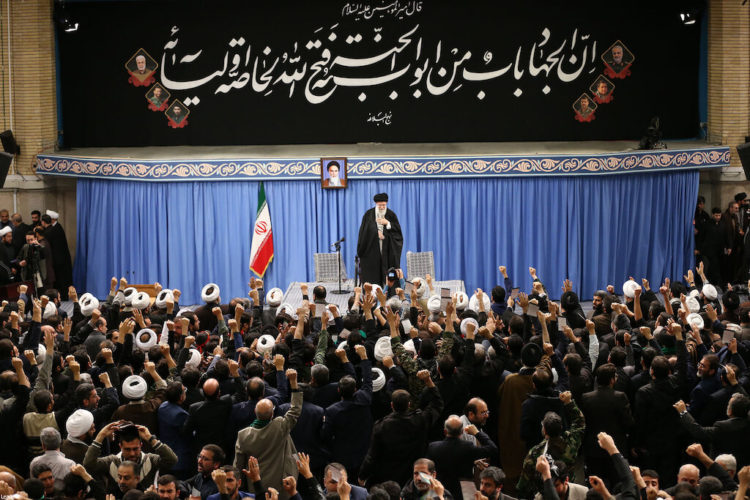Unlike President Trump, the Iranian government has been keen to emphasize its “proportionate response,” which stands in contrast to Trump’s suggestion that he may carry out a “disproportionate response.” The latter is widely accepted as being a war crime. By targeting Al Asad Air Base and a base in Erbil housing U.S. troops, Iran has limited itself to military targets and therefore reinforced its claims of legality.
Targeting
Furthermore, both the Finnish and Lithuanian militaries, which have troops stationed at Al Asad Air Base, were warned ahead of time in order to be able to move their troops to safety. Clearly, the Iranians were not focusing on maximizing casualties or targeting civilians.
Additionally, Trump’s pledge to even strike cultural sites, which would serve absolutely no military purpose, gives Iran further foundation upon which to make its case. In September 2016, the International Criminal Court convicted Ahmad al-Faqi al-Mahdi, an Islamist militant, for intentionally destroying cultural sites — the first time cultural destruction has been used in a war crime case. In March 2017, the United Nations Security Council unanimously passed a resolution that called for perpetrators of cultural destruction to be prosecuted for war crimes.
Both the United States and Iran are signatories to the 1954 Convention for the Protection of Cultural Property in the Event of Armed Conflict.
Self-defence or not?
The problem with the American justification for the airstrike, which in turn strengthens Iran’s legal claims, is that it should be viewed within a wider context. For years, the Trump Administration and key members, both past and present, have been openly calling for war and regime change. Former national security advisor John Bolton, for example, was reported to have requested that the Pentagon draw up plans for potential military attacks against Iran proper.
The UN Charter permits the use of military force if conducted in self-defence. This is generally understood to include preemptive strikes if they are staving off an imminent attack. However, the initial statement released by the Defense Department made no claims of imminence but simply that the “strike was aimed at deterring future Iranian attack plans.”
If the U.S. was not responding to an immediate threat but rather a general perception, then it would appear that Iran was reacting to an illegal attack.
Domestic law
Claims of U.S. defensive conduct are in fact mirrored by Iran. Soleimani was accused of supporting groups that attacked American soldiers, had been denounced him as a “terrorist” and even the entirety of the Islamic Revolutionary Guard Corps as a terrorist organization had been designated as a terrorist organization.
Shortly before the retaliation, Iran’s Islamic Consultative Assembly — the country’s parliament — took a page out of the American playbook and voted unanimously to designate as terrorists “all members of the Pentagon, the affiliated companies and institutes and commanders and those who ordered for the assassination of Lieutenant General martyr Hajj Qassem Soleimani.”
From a purely Iranian domestic perspective, the response seems to be legal. Meanwhile, Trump is facing a growing backlash at home on whether or not his initial decision was lawful to begin with.
Ultimately, questions of legality on the part of Iran are likely to remain a moot point. Though the U.S. could theoretically wish to bring the issue up in international bodies, it is highly unlikely to do so since it would risk exposing itself to legal incrimination. If the United States were to pursue such a path, then there would be nothing to stop countries like Syria, which itself was a target of U.S. airstrikes, from seeking legal recourse.










COMMENTS